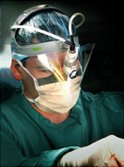Frozen Shoulder (Adhesive Capsulitis)
Who gets frozen shoulder syndrome?
Adhesive capsulitis is an inflammatory disorder of the joint lining of the shoulder that effects approximately 2% of the general population. It is more commonly seen in patients aged 40 to 60, is more commonly seen in women, and even more frequently around menopause. Diabetics and patients with Thyroid disease are more prone to adhesive capsulitis, and 10% of diabetic patients will develop a frozen shoulder. This syndrome can also develop following any type of shoulder surgery. Interestingly, if one develops frozen shoulder in one shoulder, there is up to a 14% chance it will develop in the other shoulder at some point.What occurs with a frozen shoulder?
The joint lining of the shoulder (joint capsule) becomes inflamed, thickened, and the ligaments around the shoulder become tight. There are three stages that have been described:
Stage 1 - Freezing Stage
- Slow onset of pain
- Gradual loss of motion
- Lasts from 6 weeks to 9 months
Stage 2 - Frozen Stage
- Gradual improvement in pain
- Stiffness remains.
- 4-9 months
Stage 3 - Thawing Stage
- Motion slowly improves towards normal
- 5 - 26 months.
What is the treatment?

The good news is that this typically will resolve without the need for surgery. In fact, 90% of patients will not require surgery. The bad news is that it takes time. Left alone with no intervention, the syndrome could take 1-2 years to resolve. Fortunately, there are simple treatments that can help improve pain and facilitate improvement of shoulder motion.
Non-operative Treatment
The initial treatment for frozen shoulder involves the following treatments:
Activity Modification
Cortisone injection
Anti-inflammatory Medications
Stretching program at home
- 3 times a day
- Stretch and hold for 30 sec
- Warm moist heat environment (one time a day in the shower)








